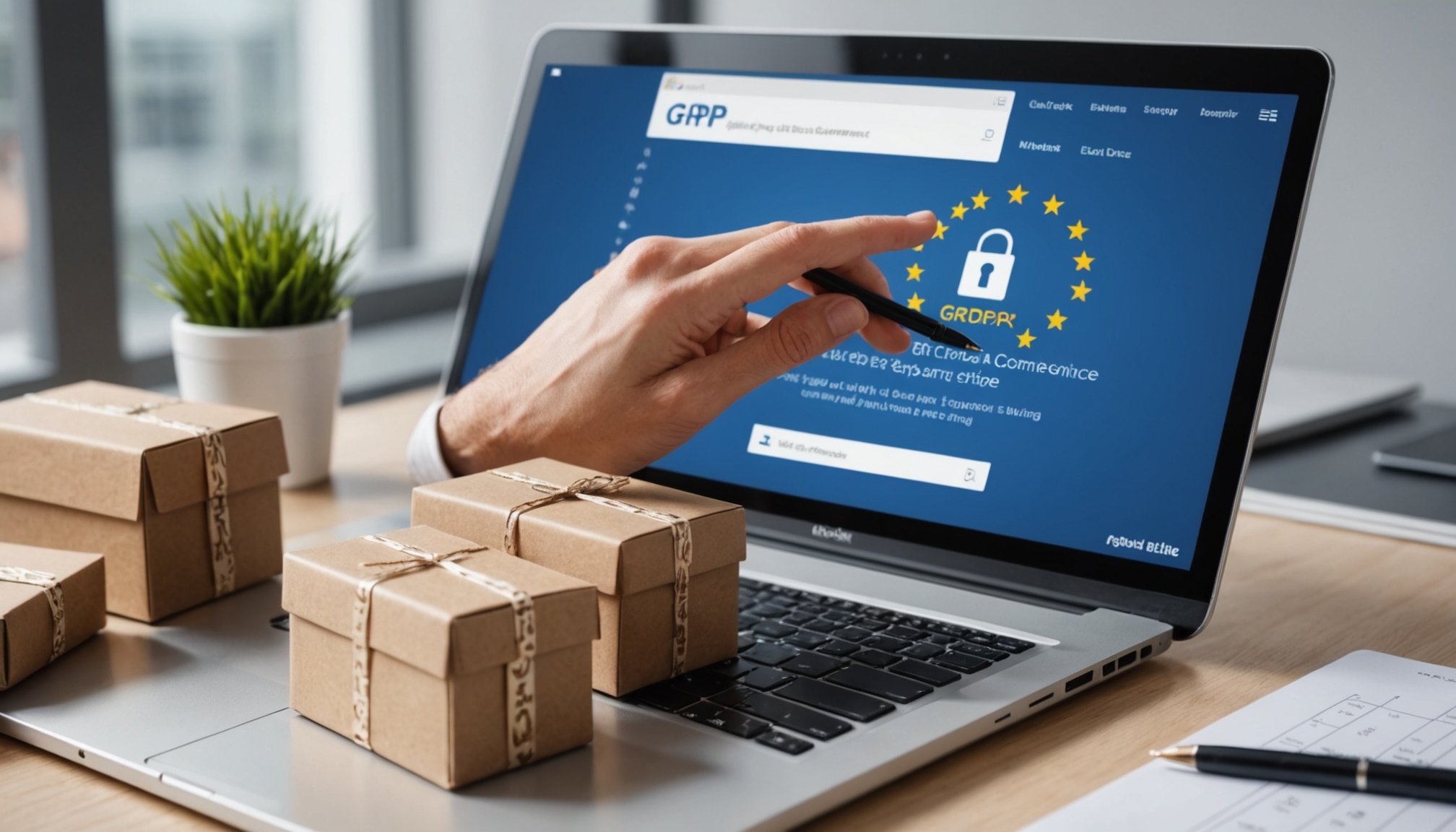Importance of GDPR Compliance for UK E-Commerce
In the digital age, GDPR compliance is crucial for UK e-commerce businesses. The General Data Protection Regulation (GDPR) sets a high bar for data protection standards, ensuring customers’ personal information is handled securely. This creates a trust framework essential for online transactions.
Prior to GDPR, data regulations were more lenient, allowing businesses to manage data as they saw fit. The key differences now lie in the strict consent requirements and increased consumers’ rights to access, rectify, and erase their data. These changes empower consumers, requiring businesses to overhaul their data management and consent practices.
In the same genre : Revolutionizing uk finance: how blockchain innovations are boosting efficiency in financial institutions
Failing to meet legal obligations can result in hefty penalties. Non-compliance could mean fines of up to €20 million or 4% of annual global turnover, whichever is higher. Such consequences not only impact financial health but also tarnish brand reputation.
For UK e-commerce, compliance isn’t just about avoiding penalties; it’s about maintaining customer trust and competitive edge. When businesses adhere to GDPR, they demonstrate a commitment to ethical data usage, which can enhance their brand image. Compliance thus becomes an opportunity, not just an obligation, to build strong, transparent relationships with customers.
Also to see : Transforming school administration: harnessing ai for enhanced efficiency in uk education systems
Key Principles of GDPR for E-Commerce
Understanding the GDPR principles is integral for e-commerce businesses striving to protect user privacy while maintaining compliance.
Lawfulness, Fairness, and Transparency
Under GDPR, lawful processing of personal data requires a defined legal basis, such as consent or a contractual necessity. It’s imperative for e-commerce platforms to communicate transparency in their data collection processes to ensure consumers comprehend how and why their data is utilized. Failing to do so can lead to mistrust and potential legal repercussions.
Purpose Limitation Principle
E-commerce entities must adhere to the purpose limitation principle, which dictates that data collected should only be used for specific, legitimate purposes. Businesses must avoid repurposing customer data without obtaining new consent, thereby respecting data subject rights.
Data Minimization Requirement
The data minimization requirement within GDPR mandates that only data strictly necessary for the specified purpose be collected. E-commerce businesses can adopt strategies like regularly auditing their data collection practices to ensure minimization. Incorporating these GDPR principles not only builds trust but ensures compliance and respects the privacy rights of users. Ultimately, these practices empower consumers by recognizing their fundamental right to privacy and control over their personal information.
Steps for Achieving GDPR Compliance
In the realm of UK e-commerce, achieving GDPR compliance can seem daunting, yet it’s essential for safeguarding customer data and maintaining trust. Implementation steps begin with a meticulous data audit. First, identify all personal data collected, stored, and processed. This involves a comprehensive inventory of data types, sources, and storage methods.
Next, develop robust compliance strategies by formulating clear privacy policies. These policies must outline the intent and method of data collection. Make sure to clearly communicate this information to customers, ensuring transparency and understanding of their rights. Additionally, robust consent mechanisms are critical. Implement explicit consent requests, allowing users to actively agree to data processing.
The final significant step involves establishing data protection practices and regularly evaluating these processes. Integrate measures such as data encryption and access controls to prevent unauthorized access. It’s also beneficial to appoint a Data Protection Officer (DPO) to oversee compliance efforts and address any data protection queries.
By adhering to these structured implementation steps, UK e-commerce businesses can build a foundation of trust, demonstrate accountability, and effectively protect consumer data in alignment with GDPR requirements. Achieving compliance not only mitigates legal risks but also establishes a competitive edge in today’s data-driven market.
Common Challenges in GDPR Compliance
Navigating GDPR compliance can be daunting for e-commerce businesses, often plagued by several compliance challenges. A primary challenge is aligning organisational processes with GDPR standards, which mandates rigorous data protection measures. Many businesses struggle with identifying potential data protection issues, such as ensuring lawful bases for data processing and implementing robust data breach protocols.
Real-life instances of compliance failures shed light on these challenges. Companies have faced hefty fines and reputational damage due to inadequate privacy notices and insufficient consent mechanisms. For instance, a notable e-commerce platform incurred substantial penalties when it failed to adequately inform users about how their data was used, highlighting the dire consequences of overlooking clear communication.
To mitigate these compliance challenges, businesses must prioritise comprehensive data audits and continuous monitoring. Adopting privacy by design principles can effectively address data protection issues by embedding privacy controls into business operations from the outset. Furthermore, training staff to recognise and respond to potential pitfalls can bolster compliance efforts.
In conclusion, understanding and addressing these common challenges is crucial. By integrating stringent data protection practices, e-commerce businesses can achieve improved GDPR compliance and reduce the risk of severe repercussions.
Practical Tools and Resources for Compliance
When navigating the stringent waters of GDPR compliance, having the right tools and resources can make the process smoother for e-commerce businesses. Let’s explore how you can optimise compliance using practical tools and resources.
Tools for Data Management and Consent
Investing in robust compliance tools is essential for managing data efficiently and ensuring consumer consent is correctly obtained. These tools help automate data handling, which reduces the risk of human error. By implementing software solutions, businesses can track consent agreements and manage customer data securely, upholding confidence in their data handling practices.
Resources for Training and Awareness
GDPR compliance is not a one-time effort but an ongoing responsibility. Leveraging resource recommendations such as online training programs can boost your team’s awareness and understanding. Interactive modules and webinars provide current information on GDPR assistance, keeping staff informed about compliance requirements and best practices.
Consulting Services for E-Commerce Businesses
E-commerce businesses benefit substantially from consulting services focusing on GDPR adherence. Professional consultants offer tailored strategies and insights for integrating compliance requirements seamlessly into business operations. They offer expertise to navigate complex regulations, ensuring your business not only meets legal obligations but also builds customer trust by demonstrating accountability and transparency.











